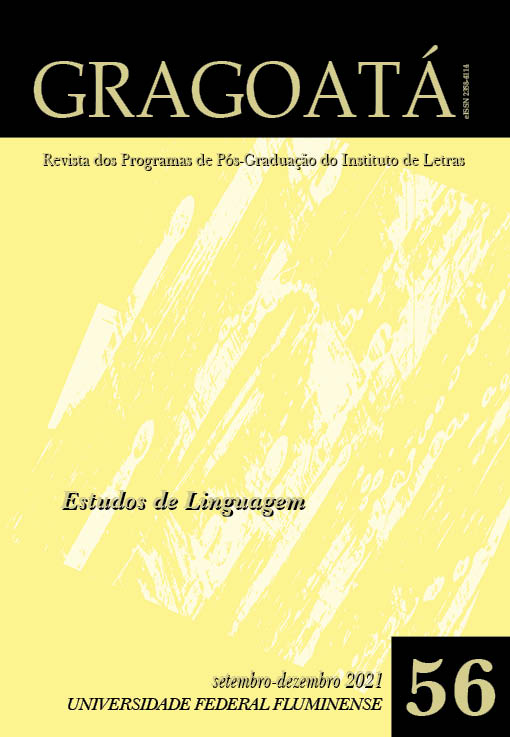In my skin: racial education and post abyssal thinking of black aesthetics
DOI:
https://doi.org/10.22409/gragoata.v26i56.51598Keywords:
Racism, Racialization, Education, Critical Racial LiteracyAbstract
This work, which is a fragment of a research that has been discussed in lectures and presented separately in other journals and books, examines through the lens of critical racial literacy, the discrimination, tension, and racism experienced by Afro-Brazilian persons due to the aesthetics of their phenotypic traits. The theoretical framework draws on Critical Race Theory (LADSON-BILLINGS, 1998; FERREIRA, 2014) and Epistemologies of the South (SANTOS, 2014) which provided the basis for data analysis. The methodology for data gathering was autobiographical narratives provided by the informants, who were selected due to their experiences of the subject. The primary research instrument was an online questionnaire, voluntarily and anonymously, answered by the participants. The results show that black people in Brazil face issues of race and racism in their own homes, at schools and universities as students, as well as in their working environments. The discussion is pertinent to the field of Applied Linguistics and Education as it highlights the paramount importance of developing a critical racial literacy at schools, which can address these issues and overcome racism from a variety of perspectives.
Downloads
Downloads
Published
How to Cite
Issue
Section
License
Authors who publish in Gragoatá agree to the following terms:
The authors retain the rights and give the journal the right to the first publication, simultaneously subject to a Creative Commons license CC-BY-NC 4.0, which allows sharing by third parties with due mention to the author and the first publication by Gragoatá.
Authors may enter into additional and separate contractual arrangements for the non-exclusive distribution of the published version of the work (for example, posting it in an institutional repository or publishing it in a book), with recognition of its initial publication in Gragoatá.

Gragoatá is licensed under a Creative Commons - Attribution-NonCommercial 4.0 International.














